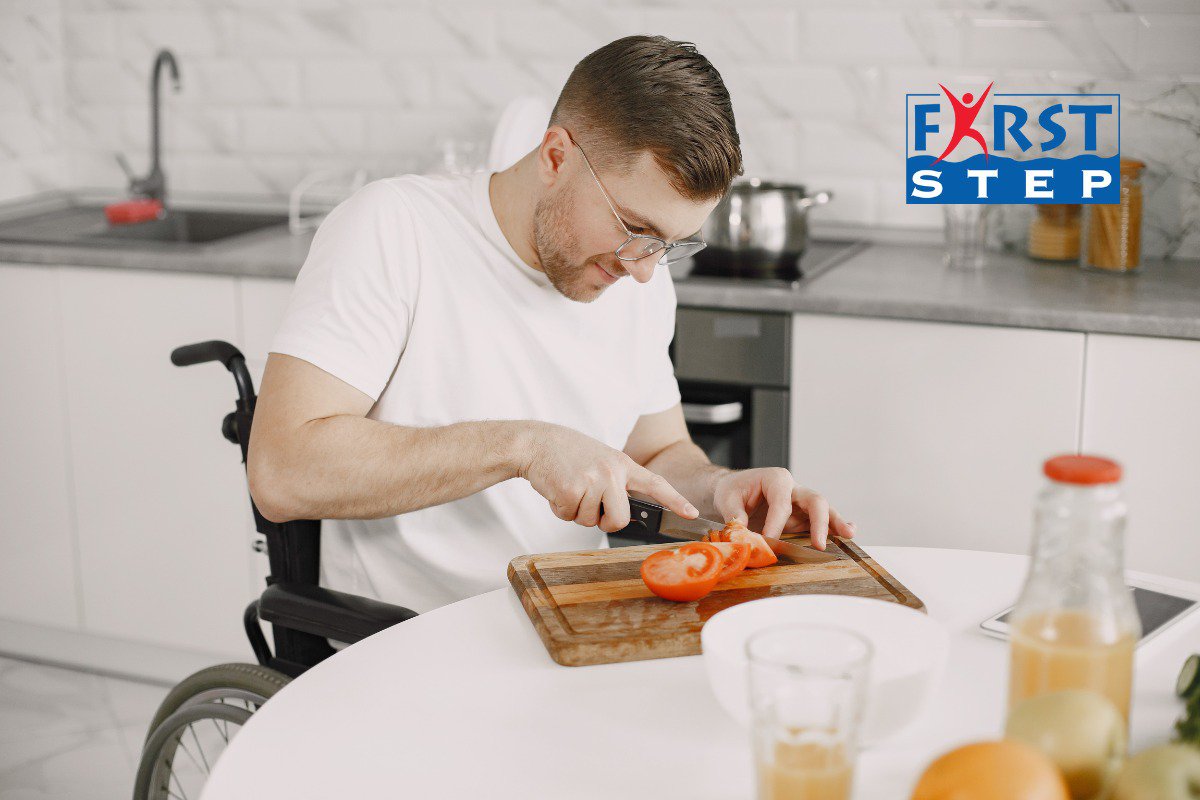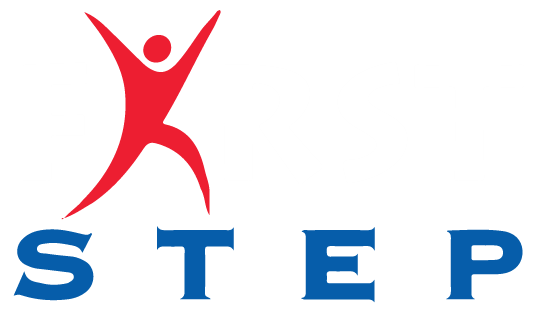Living alone requires independent living skills —are you or your loved one truly ready for it? From brushing teeth to paying bills, independent living requires more than just hope. Teaching these skills can be challenging, but it's essential. Let's explore the key steps, tools, and tips to help young adults live with confidence and care.
Key Takeaways:
- Essential skills: Develop cooking, budgeting, cleaning, personal hygiene, time management, healthcare, and communication for independent living.
- Health and comfort: Daily hygiene and grooming enhance social comfort and well-being.
- Culinary basics: Focus on meal planning, kitchen tool safety, and proper food storage.
- Financial management: Track income and expenses using apps and checklists.
- Cost-saving strategies: Use shopping lists, buy in bulk, and avoid impulse purchases.
- Home maintenance: Cleaning routines and laundry skills create a safe, comfortable environment.
- Effective scheduling: Use planners and timers to prioritize tasks and manage time.
- Safety preparedness: Plan for emergencies and stay aware of personal and public safety.
- Employment readiness: Enhance skills in resume writing, interviewing, and workplace professionalism.
- Social dynamics: Develop skills in setting boundaries, conflict resolution, and maintaining relationships.
- Support for disabilities: Transition plans, visual aids, and specialized programs benefit teens.
- Growth resources: Utilize SMART goals, checklists, and support tools for personal development.

Essential Independent Living Skills for Young Adults
Living alone can be both an exciting and daunting experience. The key is knowing what essential skills are required to navigate daily life. If you're unsure, remember that everyone starts from somewhere.
Most Useful Independent Living Skills
Key Independent Living Skills: Cooking, budgeting, cleaning, personal hygiene, time management, healthcare, and communication are crucial for independent living.
Personal Care and Hygiene for Independent Living
Daily hygiene extends beyond the basics. It includes showering, skincare, grooming, and keeping clothes clean. These routines enhance health and boost self-confidence. Managing medications by knowing how to refill prescriptions or contacting healthcare professionals is equally vital.
Cooking and Meal Planning for Independence
Cooking doesn’t require you to be a chef, but knowing how to prepare basic meals is essential. Skills like boiling pasta and frying eggs enable meal independence. Plan and shop with a list, starting with your favorite meals. Collaborate with friends or family for cooking sessions. Discover the benefits of freezing leftovers and eating healthily, which can save money in the long run.
Home Maintenance and Cleaning as Independent Living Skills
A tidy environment promotes tranquility. Key skills include doing laundry, bed-making, and cleaning bathrooms and dishes. Utilizing reminders or weekly lists helps maintain cleanliness, preventing unpleasant odors and fostering a sense of pride in one’s living space.
Money Management Skills for Future Security
Tracking earnings and expenses is foundational. Aim to manage money by earning, paying bills, and saving simultaneously. Smart shopping—using coupons, buying in bulk, and selecting store brands—can stretch budgets. Budgeting apps can simplify the process of organizing finances, focusing on major monthly costs like rent, food, and transport.
Time Management in Independent Living
Everyone has the same 24 hours. Prioritize essential tasks and personal desires by using a planner. Scheduling work, education, and relaxation reduces stress and aids personal growth. Establishing small daily or weekly goals monitors progress, while breaking larger tasks into manageable parts can alleviate panic.
Social Skills for a Well-Rounded Independent Life
Social skills encompass interactions with various individuals, from store clerks to healthcare providers. Effective communication involves asking questions, expressing needs, and setting boundaries. Begin with small engagements, such as coffee meetups or attending events, to cultivate a stronger presence and social connections.
Growth Through Support and Practice
It’s normal to feel uncertain, but skills develop over time. Using tools like checklists and supportive programs can guide progress. Growth comes from learning incrementally until independent living feels not just manageable but also like home.
Explore this guide to Building Inclusive Communities for Adults with Disabilities for more information.
Teaching Independent Living Skills to Young Adults
Effective Methods for Teaching Life Skills
Tailoring teaching methods to an individual’s learning style is effective. Visual learners benefit from charts or pictures, while hands-on learners thrive in active participation. Break tasks into smaller steps for clarity, such as choosing a recipe, gathering ingredients, and cooking. This technique, known as task breakdown, aids learning.
Measuring Progress in Skill Development
Evaluate progress by tracking shared, extra, or missed actions using precision and recall metrics. Effective feedback and encouragement can boost learning. Positive reinforcement, like verbal praise or small rewards, can motivate continued effort.
Youth with varying needs may benefit from specialized tools like voice prompts and checklists, which aid routine creation and consistency. Coordinating home and school goals enhances memory retention and builds trust, aiding skills development.
Implementation of SMART Goals
Utilizing SMART goals—Specific, Measurable, Achievable, Relevant, and Time-bound—enables focused progress tracking. For instance, the goal to “wash, dry, and fold laundry weekly” provides clear direction compared to generic home help aspirations. Explore additional resources and programs at First Step, Inc..
Tools and Checklists for Developing Independent Living Skills
Utilizing Checklists for Skill Assessment
Checklists help identify strengths and areas for growth. Select comprehensive checklists covering food, finances, health, self-care, and housekeeping. This approach ensures no skill is overlooked and identifies focus areas for practice. Access helpful resources.
Assessment of Cooking and Household Skills
Evaluate ability through tasks like following recipes or completing laundry steps. Tracking completion rates measures competence. The Community-Based Skills Assessment from NICHD can guide development by evaluating real-life activities like shopping and cleaning, then providing actionable goals.
SMART Goals for Continued Progress
Craft a growth plan using SMART goals tailored to individual needs. For those learning to cook, a goal like “prepare three meals independently within two weeks” is effective. Explore more tools for guided personal development.
Building Independent Living Skills Through Self-Care and Hygiene Routines
Establishing Daily Hygiene Routines
Essential daily hygiene practices include brushing teeth twice, hand washing, and daily showers. These prevent illness and enhance comfort. Consistent routines help sustain health and social acceptance.
Addressing Bodily Changes and Grooming
Navigating puberty brings new challenges like deodorant use and acne management. Regular grooming, including nail and hair care, contributes to self-esteem. Recognizing signs of health issues, like rashes or eye redness, ensures timely attention.
Managing Health and Medical Needs
Understanding personal health needs, knowing when to rest, and recognizing when medical intervention is necessary build health independence. Skills like making appointments and managing prescriptions are essential.
Cooking Independent Living Skills
Cooking for Meal Independence
Essential cooking skills, like meal planning and basic food preparation, ensure health and economic benefits. Learn to plan weekly meals and explore preferred healthy foods. Simple shopping strategies and leveraging sales can aid budget-friendly meal preparation.
Emphasizing Basic Cooking Techniques
Fundamental skills such as boiling water, safe chopping, and following recipes enable diverse meal creation. Always prioritize safety—especially with hot surfaces—and seek guidance when uncertain.
Handling Food Safety and Storage
Maintain health with food safety practices like proper handwashing, using clean tools, and correct food storage. This prevents illness and supports sustainable food habits.
Independent Living Skills: Money Management
Understanding Financial Responsibilities
Awareness of income, expenses, and recurrent costs is vital. Establish monthly financial planning for income management, covering essentials first, then saving a portion. Utilize budgeting tools to track finances effectively.
Developing Basic Budgeting Practices
Creating a basic budget involves listing income and necessary expenses while allocating funds for savings and entertainment. Mastering these skills can lead to financial security and empowerment.
Applications for Monitoring Spending
Tracking tools such as apps, paper methods, or banking tech support clarity on spending. Read this financial planning guide for additional budgeting insights. Understanding and controlling finances builds confidence and enables future planning.
Independent Living Skills: Shopping & Financial Management
Saving Money with Thoughtful Shopping
Utilizing shopping lists, buying in bulk, and preferring store brands lead to significant savings. Avoid shopping on an empty stomach to deter impulse purchasing. Coupons and meal planning around affordable items help maintain budget integrity.
Managing Bills and Financial Responsibilities
Using automatic payments and tracking systems aids timely bill management. Prioritize essential payments and distinguish between needs and wants to maintain financial stability.
Differentiating Between Needs and Wants
Posing questions like “Is this essential?” helps prioritize spending. Delaying or forgoing wants can greatly conserve resources over time.
Independent Living Skills: Organizational Strategies
Maintaining a Clean Living Space
Creating and adhering to a regular cleaning schedule fosters a calm environment. Tools like checklists or apps can simplify routine maintenance, making cleanliness a habit.
Mastering Laundry and Daily Planning
Learning proper laundry techniques and efficient daily scheduling enhances independence. Marking completed tasks provides a sense of accomplishment and clear organization.
Time Management Tools for Independent Living
Choosing the right time management tools, from planners to apps, bridges tasks and leisure effectively. Label tasks by urgency to prioritize effectively and maintain balanced block schedules.
Rest is essential, contributing to focus and efficiency in independent living. Visit this resource for further organizational guidance.
Take the First Step Towards Independence
Empower yourself or your loved ones with the skills needed for confident, independent living. At First Step, Inc., we offer compassionate support and personalized programs tailored to individual needs. If you're ready to explore these opportunities, reach out to us today. Together, we can create a path to independence and an enriched quality of life.


